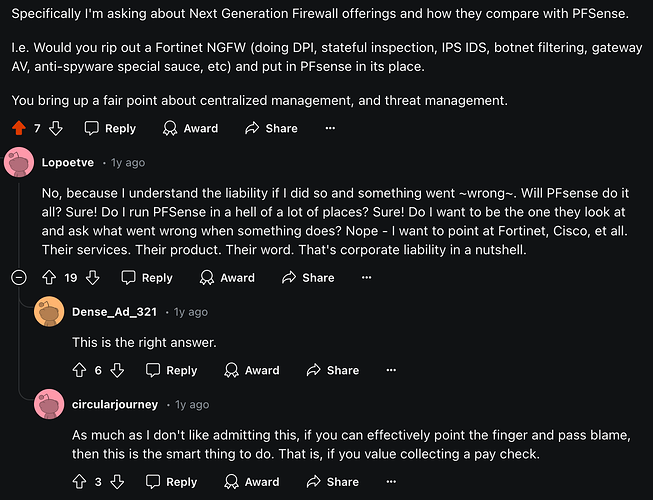I would like to have some outside perspective on the following scenario.
We have a SonicWall NSA 3650 with SonicWall Advanced Gateway Security Suite ($2560/year).
We have two offices (NY, LA), ~160 employees, ~ 30-40 remote workers. The LA site uses site-to-site VPN heavily to connect to RDS. There are not many public-facing services, just 3-4 site-to-site (datacenter, AWS). 1 Gig shared commercial internet. Velocloud SDWAN in front of the SonicWall
I was considering switching to pfSense (for example SG-8200) with TAC Pro or TAC Enterprise support. (upfront $1400, +$400 or $800 for support)
This was the answer:
- NSA 3650 is an aging hardware (CDW offered us a new one if we sign 3 years)
- we have constant issues (if someone tries to upload large files, just can’t handle the traffic. For example Google Drive) - This could be a config issue.
- we don’t do any content filtering
- both of us (who manages the SonicWall) have experience with pfSense at home and we have a Netgate 1537 in the LA office
pfSense Pros:
- new hardware with optional HA
- better UI (much more intuitive)
- OpenVPN (license free)
- better tools to troubleshoot and monitor
SonicWall Pros:
- works relatively ok
- we have most of the things configured
Am I just too enthusiastic because pfSense works well at home? (I wouldn’t mind investing in the time to reconfigure and change it. Good opportunity to clean up and remove old stuff.)
